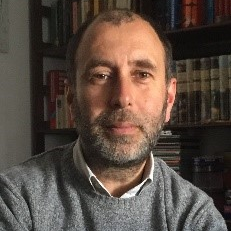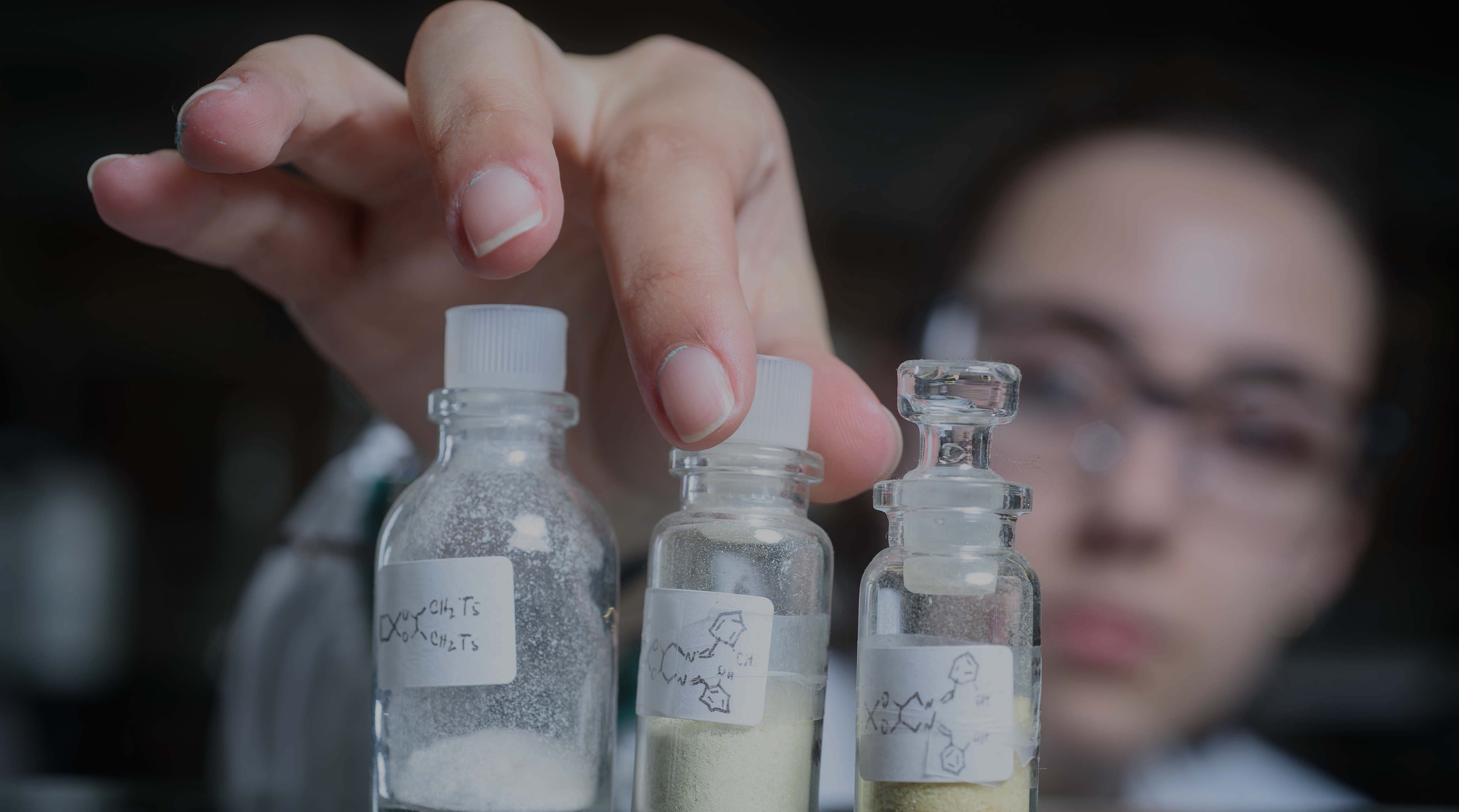Coordinator
 |
Alberto António Caria Canelas Pais Full Professor +351 239854466 |
The Soft Matter Group explores the intricate structure and dynamics of chemical systems, from molecular interactions to macroscopic phenomena, and spans timescales from sub-picoseconds to seconds.
Research Focus
The Soft Matter Group investigates a wide range of materials, from inorganic ions such as metal ions to macromolecules, including polymers, in aqueous solutions. Key areas of focus include the onset of self-aggregation, the types of aggregates formed, and their rheological behavior. This research supports the development of applications in pharmaceutics, environmental science, and energy, as well as the creation of luminescent sensors and optoelectronic devices. Complementary NMR studies, theoretical analysis, and luminescence studies are conducted to enhance understanding. Computational studies play a crucial role in this research, providing insights into the behavior and interactions of these systems at a molecular level. Additionally, the group designs and prepares novel fibers, soft nanoparticles, and new polymeric thickeners by carefully balancing hydrophilic (often electrostatic) and hydrophobic interactions.
Materials Development
The development of new polymeric materials includes cellulose-based polymer functionalization, conducting and luminescent sensing polymers, and bio-hydrogels for drug delivery and water remediation. This is complemented by transport property analysis, involving inter-, intra-, and thermal diffusion of multicomponent systems in aqueous solutions and through polymers. Research interests span from biomolecules and polyelectrolytes to advanced materials involving supercritical CO2 and supramolecular structures. Computational chemistry is also a strong focus, aiming to relate theory and experiment, and to develop new computational tools for teaching and research purposes.
Photochemistry and Macromolecules
Research covers a wide range of areas involving the study of excited state species and decay processes. State-of-the-art equipment for fs-ns transient absorption, fs-UC, and ps- and ns-time resolved fluorescence is available for diverse studies. Topics include fundamental photophysical processes in various systems such as indigo derivatives, and practical applications like host-guest interactions of curcubiturils with fluorescent probes, photoCORMs, TTA-UC molecular systems, Au(I)–coumarin complexes, supramolecular chemosensors, and ligands aimed at inhibiting DNA telomerase in cancer cells.
Subareas
The group is divided into two subareas: Colloids & Macromolecules and Photochemistry & Macromolecules, which further incorporate several specialized laboratories as described below:

Colloids & Macromolecules
Laboratory of MultiComponent Systems
In the Laboratory of MultiComponent Systems (MCSys), systems are being studied both experimentally and with various computational and modelling experiments. Examples include characterization of the interaction of nanosystems with biomembranes and modulating the respective function.
This Laboratory also integrates researchers with a large experience in different topics of pharmaceutical technology, standing out in the areas of nanotechnology and regulatory science. Specifically, it has been explored the use of solid matrix lipid nanocarriers and derivative hybrid systems, as drug permeation enhancement strategies for dermal, transdermal, oral, and drug delivery systems to brain targeting. The close association of these specialities with the Faculty of Pharmacy is a clear advantage in the work of this group.
Monte Carlo simulations are being used to obtain an understanding of the adsorption patterns and conformational behaviour of polyelectrolyte based systems (polyplexes, functionalised nanoparticles and origami structures).
This Laboratory also collaborates frequently with other groups of the CQC (Medicinal Chemistry, Organic Chemistry, and within the SoftMatter group) employing ab initio and Molecular Dynamics simulations. These include mechanistic rationalisation of relevant synthetic routes, compound characterization and polymer interactions with classical and emerging pollutants.
The MCSys Lab has also been developing a strong component on prediction of both properties and biological activity of selected classes of compounds resorting to machine learning tools. Other approaches within Data Science are also carried out: general Chemometrics approaches, blibliometry and new algorithms.
Laboratory of Computational Molecular Sciences
The Laboratory of Computation and Molecular Sciences (CMS) is the only laboratory solely dedicated to computational studies. It provides computational support for several other laboratories and manages significant computational resources. The respective research is built upon computer simulations and computational tools and focuses on four different topics: (i) microsolvation of ions with atoms and molecules, aiming at understanding solvation phenomena; (ii) aggregation of molecules with relevance in astrochemistry and combustion; (iii) self-assembly of colloidal particles employing coarse-grained models; (iv) Design and simulation of chemical systems for environmental and food applications. The research conducted on topics (i) and (ii) comprises the modelling of the interactions by employing different levels of theory, the structure optimization with genetic algorithms and the calculation of thermodynamic properties. Topic (iv) employs both electronic structure calculations and molecular dynamics simulations and has been developed in collaboration with the experimental group of Prof. Artur Valente (MTP). The development of software covering all the four research topics, and which is made available for the scientific community, is one of the major goals at the CMS.
Laboratory of Chemistry of Macromolecules
This Laboratory conducts work in a variety of systems, including the synthesis of organic and organometallic compounds for applications in medicinal chemistry, environmental chemistry, and energy.
Photochemistry & Macromolecules
Laboratory of Photochemistry
The Photochemistry Laboratory possesses extensive expertise in employing both steady-state and time-resolved techniques across various photophysical domains. These domains encompass polymer dynamics, luminescent conjugated polymers, proton- and electron-transfer reactions, Chemistry and Art, as well as redox flow batteries. We are specialized in the investigation of novel photochemically active compounds and fluorophores. Our research utilizes photophysics tools to address complex challenges in chemistry, biology, environmental chemistry, and materials science. With expertise in steady-state and time-resolved fluorescence, as well as transient absorption spectroscopy, our group is actively engaged in several research projects.
Laboratory of Macromolecules and Transport Phenomena
The Macromolecules and Transport Phenomena Laboratory conducts fundamental and applied research in the field of the mass transport properties, of electrolytes and non-electrolytes, of low and high molecular weight, compounds, and in supercritical fluids, supramolecular chemistry and on the development of new soft materials for drug delivery and environmental remediation.
Laboratory of the Colloids and Innovative Nanomaterials Group (Colling)
In the Colling Laboratory at the University of Coimbra, our primary focus revolves around unraveling the intricate behaviors of surfactants and polymers. Our team is driven by the quest to pioneer innovative solutions and over the years, Colling Laboraty has cultivated a rich history of accomplishment, successfully undertaking more than 50 projects in collaboration with both national and international enterprises. Our areas of expertise encompass a wide spectrum, including polymer-surfactant interactions, synthesis of surfactants, cellulose dissolution, biopolymers, biocomposites, rheology of physical gels, smart copolymers, as well as the synthesis and manipulation of both soft and hard nanoparticles. We are also adept at the stabilization of suspensions, the development of colloidal sensors, nanoencapsulation techniques, and the application of polymeric coatings. With a profound commitment to the field of colloid chemistry, our research encompasses a broad interaction with external companies.
